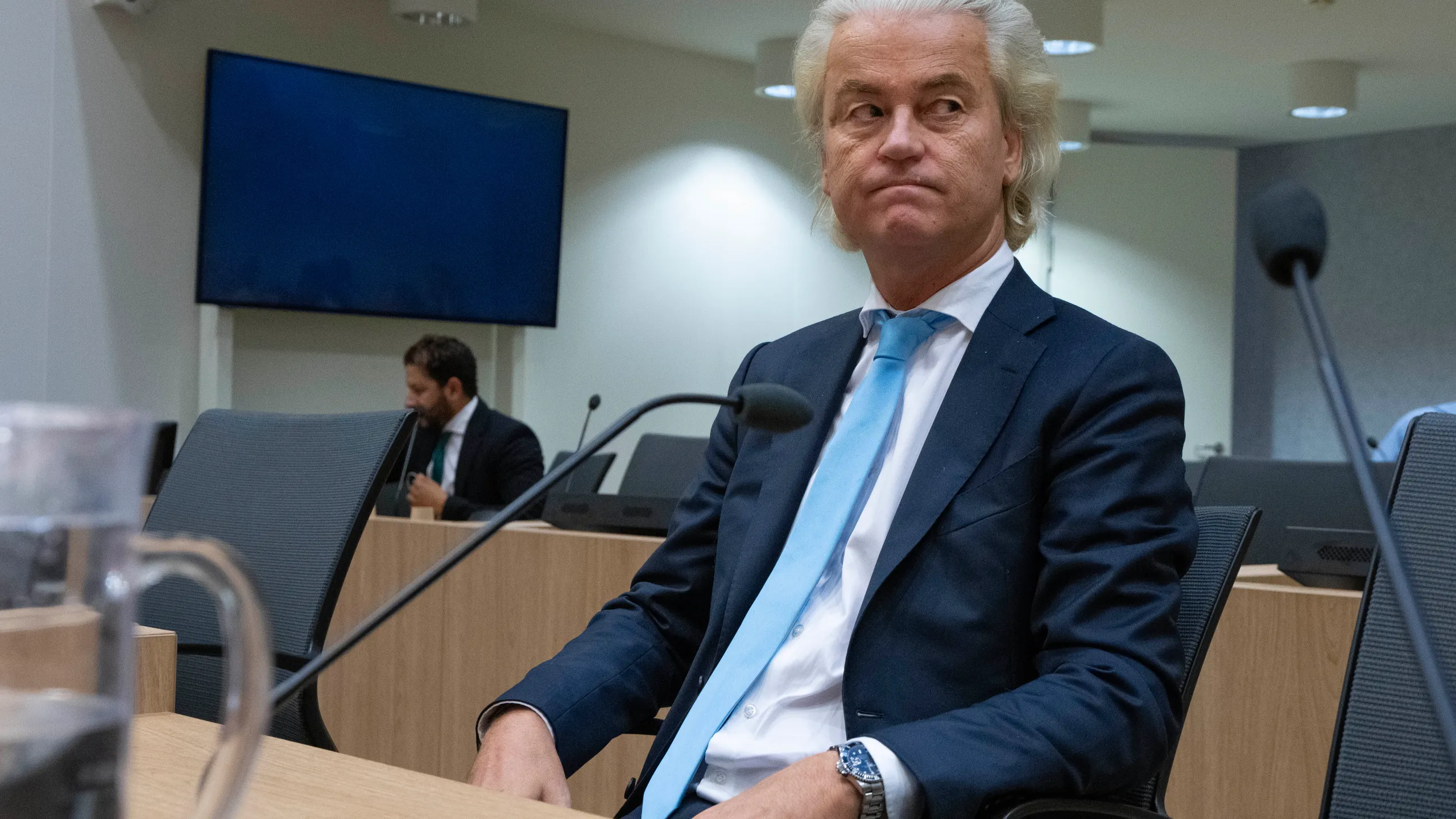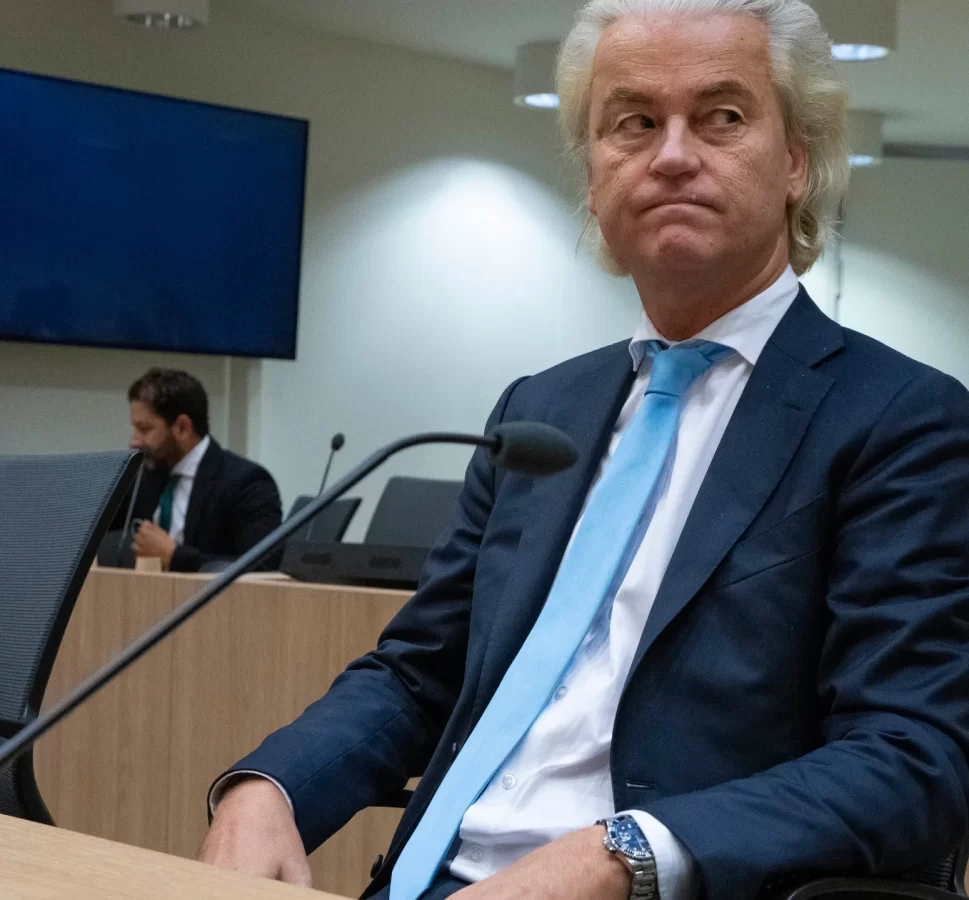
Two men are standing trial in absentia at a high-security court near Amsterdam for inciting the murder of the far-right politician.
Dutch prosecutors have demanded a 14-year sentence for two Pakistani men over allegations that they sought to incite the murder of far-right politician Geert Wilders.
The pair, a religious leader and a political party chief, were tried in absentia on Monday on charges they urged followers to kill Wilders, whose party joined the government for the first time this year after winning the most votes (23.5 percent) in last year’s elections.
Prosecutors charged Muhammed Ashraf Jalali, a 56-year-old religious leader, with promising his followers they would be “rewarded in the afterlife” if they killed the anti-Islam politician.
Saad Hussain Rizvi, leader of the Tehreek-e-Labbaik Pakistan party, is also suspected of calling for Wilders’s murder.
The trial occurred at a highly secure court near Amsterdam’s Schiphol airport.
The calls were among a rash of threats made after Wilders sought to arrange a competition for cartoons of the Prophet Mohammed.
“This case has had a huge impact on me and my family,” Wilders said. “I’m asking this court to send a strong signal … that calling a fatwa in this country is unacceptable.”
Wilders used the Islamic legal term to mean a death sentence, but “fatwa” does not mean capital punishment. It is a decree made by an Islamic religious authority or court that is issued by a mufti, an expert on the law of the Quran.
Dutch authorities have asked Islamabad for legal assistance to question the suspects and demand they appear in court.
However, no treaty exists with Pakistan for mutual legal assistance, and the two men did not appear in the dock. Neither man had legal representation present.
Death threats and state protection
A year ago, former international Pakistani cricketer Khalid Latif was sentenced to 12 years in the Netherlands for incitement to murder Wilders although he is thought unlikely to serve any of the term.
Wilders cancelled the cartoon contest after protests broke out in Pakistan. The planned competition “caused a lot of unrest within the Muslim community. He [Wilders] received hundreds, if not thousands of death threats,” said the judge, who asked not to be identified.
In the Netherlands, the plan to stage the contest was widely criticised as needlessly antagonising Muslims.
But the call to kill Wilders appeared to resonate as a Pakistani man was sentenced to 10 years in prison in 2019 for plotting his assassination in the wake of the cancelled contest.
Wilders said in court he had planned the contest because “it’s unacceptable that you are not allowed freedom of speech … in countries where it is permitted by law.”
“For the past 20 years, I have been robbed of my freedom because of what I think, say, write and do,” he said.






